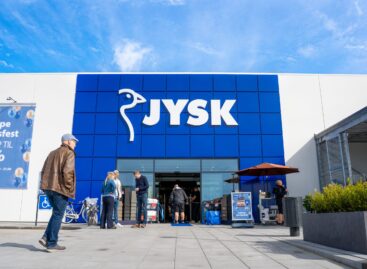100 years of Danone: Company opens access to its historical collection of 1,800 bacterial strains
Through research and innovation and collaboration with international researchers, Danone has over the years built a ferment collection of high genetic diversity
French multinational Danone has granted open access to its collection of 1,800 strains of bacteria for research purposes, in celebration of the 100-year anniversary since the creation of its first yogurt. This includes granting access to its current collection of 193 lactic and bifidobacteria ferment strains deposited at the National Collection of Cultures of Microorganisms, held in the Biological Resource Center of Institut Pasteur (CRBIP).
The over 1,800 strains, archived at its Research & Innovation center in Paris-Saclay, France, will be accessible to researchers around the world to promote “open science” – Danone’s movement toward openness in scientific research, sharing and the development of knowledge through collaborative networks.
Danone Nutricia Research also recently joined forces with the California San Diego Center for Microbiome Innovation (CMI) to further advance understanding of the connection between the diet and human gut through The Human Diets & Microbiome Initiative (THDMI). Through scientific partnerships and wider collaborations to encourage open science and innovation, Danone hopes to gain traction towards its 2030 Goals, which aim to generate growth in an “inclusive way, through internal and external collaborations.”
“As part of our commitment to meet people’s needs, we have continuously invested over the past century to build Danone’s expertise in ferments, fermentation and health through food. At a time when our food system and society face a range of unprecedented challenges, we are proud to open our unique collection of strains to the world’s researchers to help us progress towards a healthier and more sustainable world,” says Danone’s Chairman & CEO Emmanuel Faber, addressing the company’s centennial anniversary.
A focal motivation of the company to further accelerate research in the microbiota space is exemplified by recent undertakings, such as last month’s US$50,000 in scholarships the company awarded to graduate students in the US towards the funding of new studies in probiotics and gut bacteria. This heightened attention on the linkage of bacteria to overall health is driven by a new understanding of how gut bacteria from the food we consume influences a host of factors such as allergies, brain health and autoimmune functions.
Related news
NKFH: DANONE recalled breast milk substitutes
🎧 Hallgasd a cikket: Lejátszás Szünet Folytatás Leállítás Nyelv: Auto…
Read more >Related news
Cheese-cocoa-peach jam: these are the most popular cookie flavors
🎧 Hallgasd a cikket: Lejátszás Szünet Folytatás Leállítás Nyelv: Auto…
Read more >Hungarians don’t replace their furniture – JYSK research reveals a conscious, long-term planning market
🎧 Hallgasd a cikket: Lejátszás Szünet Folytatás Leállítás Nyelv: Auto…
Read more >KOMETA campaign: Put down your phone and experience Buona vita!
🎧 Hallgasd a cikket: Lejátszás Szünet Folytatás Leállítás Nyelv: Auto…
Read more >








